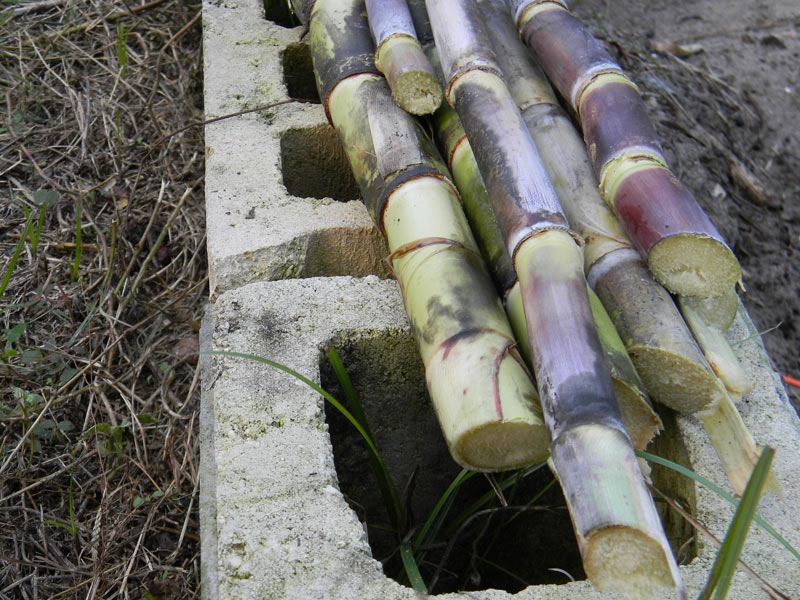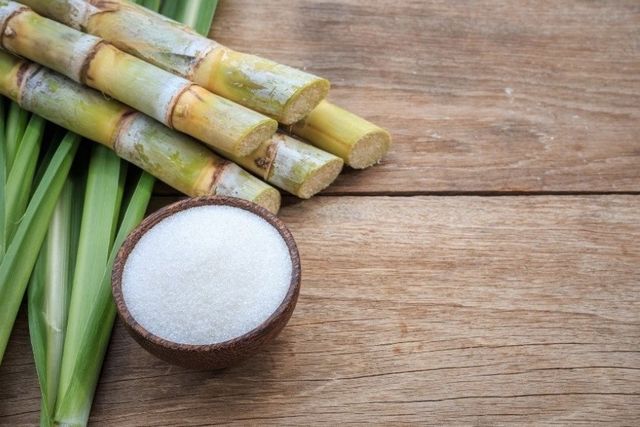Why Walking Cane Sugar Processing Chemicals Are Important for Modern Sugar Refining
The duty of walking cane sugar handling chemicals in modern-day sugar refining can not be overemphasized, as they are essential to enhancing both the performance of removal and the total top quality of the final product. Representatives such as phosphoric acid and certain flocculants are utilized to remove pollutants, resulting in sugar that not only meets consumer expectations however likewise abides by sector standards. Nevertheless, the ramifications of these chemicals extend past top quality, touching upon market dynamics and environmental considerations. This raises important inquiries about the sustainability of such techniques and their effect on the future of sugar manufacturing.
Role of Handling Chemicals
The efficiency of cane sugar processing pivots substantially on the calculated application of handling chemicals. These chemicals play a pivotal function in improving the performance and quality of sugar removal and refining. From the initial phases of juice removal to the final filtration actions, handling chemicals assist in different vital operations.
In the extraction stage, chemicals such as phosphoric acid and calcium hydroxide are utilized to enhance the information process, helping to eliminate pollutants and suspended solids from the walking stick juice. This not just enhances the yield yet additionally makes sure the clearness of the end product. In addition, agents like flocculants help in the fast settling of pollutants, therefore streamlining the overall procedure.
As the handling breakthroughs, chemicals are used in decolorization and formation stages. Triggered carbon and ion exchange resins offer to remove shade and odor, ensuring that the refined sugar meets customer quality requirements. Eventually, the role of processing chemicals extends past functional performance; they considerably affect the sensory characteristics of the final item, contributing to market competition. Hence, the thorough option and application of these chemicals are crucial for achieving ideal outcomes in walking cane sugar processing.
Secret Kinds of Chemicals
Walking stick sugar handling counts on a range of essential chemicals that assist in each stage of production. These chemicals play crucial functions in clarifying, bleaching, and detoxifying the sugar drawn out from walking cane.
One primary category of chemicals consists of flocculants, such as polyacrylamide, which help in the clarification process by advertising the gathering and settling of impurities. Additionally, calcium hydroxide is usually used to reduce the effects of level of acidity and assist in the removal of non-sugar parts.
Whitening representatives, such as turned on carbon and sulfur dioxide, are made use of to decolorize the syrup, resulting in a more clear end product. These chemicals help remove color compounds that might affect the sugar's look and marketability.
Moreover, phosphoric acid acts as a pH regulator throughout the handling phases, making certain optimal conditions for the enzymatic activities included in sugar extraction and purification.
Various other crucial representatives consist of edta (ethylenediaminetetraacetic acid), which chelates steel ions that can militarize unfavorable reactions, and salt hydroxide, which helps in pH control throughout the refining procedure. Collectively, these chemicals improve efficiency and guarantee a top quality walking cane sugar item.
Benefits for Sugar High Quality
Usually overlooked, using details handling chemicals substantially boosts the overall high quality of walking cane sugar. These chemicals play an essential role in refining processes, making certain that the click to read more end product fulfills stringent market criteria for purity and preference.

Furthermore, processing chemicals aid in accomplishing a regular granulation and structure, which are vital for customer acceptance. By managing the crystallization process, these chemicals guarantee that the sugar crystals develop evenly, causing a much more attractive product that liquifies well in different applications.
Additionally, using these chemicals can enhance the service life of cane sugar by reducing moisture absorption and microbial development. Overall, the critical application of handling chemicals is important for providing high-grade cane sugar that meets customer assumptions and industry demands.
Environmental Effect Factors To Consider

Additionally, the energy-intensive nature of sugar refining, intensified by chemical usage, usually causes raised carbon exhausts. This adds to climate change and increases issues regarding the sustainability of present refining methods. In addition, the sourcing of these chemicals may involve techniques that intimidate biodiversity, such as monoculture farming, which decreases the durability of farming ecological communities.

To mitigate these influences, sugar refiners are progressively exploring lasting options and taking on best methods that decrease chemical use. Applying strenuous ecological administration systems can assist ensure that the refining process straightens with environmental standards and promotes biodiversity. Inevitably, a well balanced method that prioritizes both sugar quality and environmental stewardship is vital for the lasting stability of the sugar industry.
Future Patterns in Refining
As the sugar market grapples with the environmental challenges related to traditional refining approaches, innovative approaches are arising to improve both effectiveness and sustainability. One considerable fad is the adoption of environment-friendly chemistry principles, which focus on making use of non-toxic, naturally degradable handling chemicals. This change not only minimizes ecological effect look at this now but additionally addresses consumer demand for cleaner manufacturing methods.
One more encouraging advancement is the execution of sophisticated filtration innovations, such as membrane separation and adsorption processes. These techniques boost the clearness and quality of the sugar while reducing the quantity of wastewater generated throughout refining. In addition, the combination of digital technologies, consisting of IoT and AI, is transforming operational efficiency by enabling real-time tracking and anticipating upkeep, thus reducing resource waste.
In addition, the usage of spin-offs from sugar refining, such as bagasse and molasses, is obtaining grip. These products can be exchanged biofuels or value-added products, adding to a round economy within the sector. Collectively, these trends indicate a change towards even more lasting techniques that not just enhance operational performance yet additionally align with worldwide sustainability goals, guaranteeing the future stability of sugar refining.
Final Thought
Walking cane sugar handling chemicals are essential in contemporary sugar refining, significantly enhancing the efficiency and quality of sugar removal. The critical use of these chemicals not only enhances the pureness and flavor of the final item but also makes sure constant crystallization and texture. As the industry progressively focuses on sustainability, the fostering of environmentally-friendly handling agents is most likely to form future fads in refining, eventually bring about better items and prolonged shelf life for customers.

Eventually, a balanced approach that focuses on both sugar quality and environmental stewardship is necessary for the lasting viability of the sugar industry.
Walking cane sugar handling chemicals are crucial navigate to this site in modern-day sugar refining, significantly boosting the efficiency and high quality of sugar removal.